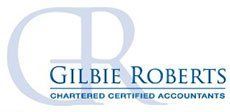Information below is now Historical Information- we've left this on our website in case clients want to look back at any of the information that has been issued during the pandemic.
Please note that these grants and loans etc. are now historical.
On 5th January 2021, the chancellor announced extra help for businesses.
If your business was closed, and had a rateable value up to £15,000 then there was a local authority grant available of £4,000. Other grants were available too- lockdown grant announced 5th January 2021
On Tuesday December 21st 2021, the government introduced a new grant scheme to support businesses that were experiencing difficulties because of the Omicron variant, and the dual impact of staff absences and lower consumer demand.
Hospitality (defined as accommodation, food & beverage services) and leisure premises benefited from targeted grant support. The Additional Restrictions Grant (ARG) was also be topped up so local authorities (LAs) could continue to use their discretion to support other businesses in their area, based on local economic need.
LRSG
There were grants for businesses that were closed- the Local Restrictions Support Grant (LRSG)
Businesses that were open as usual and were then required to close due to local Tier 2, Tier 3 or Tier 4 restrictions may have been eligible for LRSG (Closed) or LRSG (Closed) Addendum: Tier 4.
Eligible businesses were entitled to a cash grant from their local council for each 14 day period they were closed.
Furlough Scheme was Extended until April 2021
On the 17th December, the UK Government reviewed the terms of the scheme, and announced that the Coronavirus Job Retention Scheme (CJRS) would remain at the current level of 80% of usual wages for the hours not worked, and would be extended until the end of April 2021.
The Coronavirus Job Retention Scheme was extended for 5 months from 5th November-31st March 2021. The government would pay 80% of employees' current salary for hours not worked from 5th November to 31st January 2021. At this point the level of support would be reviewed for the 3 months from 1st February- 31st March 2021.
Self-employed
There was also additional help for the self-employed who were entitled to financial support of 80% of average profits for November, December and January 2021. A further grant for the period covering February to April 2021 would also be paid.
Bounce back loans
These were available until 31.1.21
Rates grants
These were available from local authorities for businesses that had to close and who were registered for rates.
Job Support Scheme made by the Chancellor Rishi Sunak on Thursday 22nd October 2020:
Businesses that weren’t required to shut due to lockdown ( JSS Open) were able to access extra funding for staff on reduced hours.
The scheme launched on the 1st of November, the day after furlough ended.
- Your employees only have to work for at least 20% of their normal working hours, which you’ll pay for as usual.
- For the hours that they don’t work, you’ll only need to pay an extra 5% of their wages to a maximum of £125 per month, plus National Insurance and pension contributions.
- The government will then contribute 61.67% of wages for hours not worked to a maximum of £1,541.75 per month.
- To put staff on the scheme, you’ll need to change their working hours. This is an amendment to their terms and conditions, so you’ll need their agreement, too.
- If your business was legally required to shut due to a local lockdown, (JSS Closed), you could still claim 67% of employees’ wages to a maximum of £2,083.33 per month.
SEISS grant extension
- The self-employment income support scheme (SEISS) grant extension was extended to support traders who are facing reduced demand over the winter months, covering 40% of average monthly trading profits.
- The initial lump sum will cover three months' worth of profits for the period from November to the end of January 2021. This was worth up to a total of £3,750.
- An additional second grant was available for self-employed individuals to cover the period from February 2021 to the end of April.
The Winter Economy Plan (announced on 24th September 2020)
This plan was altered on 22nd October 2020. The Job Support Scheme (JSS) and the Self Employment Income Support Scheme (SEISS) were changed.
More time to pay back CBILS
The Treasury provided support for lenders so they could offer coronavirus business interruption loan scheme (CBILS) borrowers more time to make their repayments where needed.
Businesses who were struggling could make interest only payments or suspend payments completely for six months.
Bounceback loans now "Pay as you Grow"
Bounceback loans, could be paid back through a ‘pay as you grow’ scheme, extending terms from six to 10 years. Interest-only periods of up to six months and payment holidays were also available to businesses.
The application deadline for all coronavirus loan schemes – including the Future Fund - was extended to 30 November 2020.
VAT
The government extended the 15% VAT cut for the tourism and hospitality sectors to the end of March 2021.
The scheme gave businesses the option to pay back in smaller instalments. Rather than paying a lump sum in full at the end March 2021, they were able to make 11 smaller interest-free payments during the 2021-22 financial year.
Self Assessment Taxpayers
Self-assessment taxpayers were able to benefit from a separate additional 12-month extension from HMRC on the time to pay self-service facility, meaning payments deferred from July 2020, and those due in January 2021, would not have to be paid until January 2022.
The second Self-Employment Income Support Scheme grant.
The scheme opened for claims on 17 August 2020 and customers were given a date to make a claim. They could claim any time between their allocated date and the 19 October 2020.
The eligibility criteria for the second grant was exactly the same as the first grant – so self-employed people who were eligible for the first SEISS grant were eligible for the second grant, so long as their business had been adversely affected since 14 July 2020. This typically meant that their business had experienced lower income and / or higher costs because of coronavirus (COVID-19) since 14 July 2020. There was no minimum threshold over which a business’s income, costs or activity needed to have changed by, but they were asked to keep appropriate records as evidence of how their business had been adversely affected.
The second taxable grant is worth 70% of average monthly trading profits, a reduction from the 80% available under the first grant. This was paid out in a single instalment and was based on three months’ worth of trading profits and capped at a maximum of £6,570.
- VAT reduction – from 15 July until 12 January 2021, the UK government cut VAT from 20% to 5% on any eat-in or hot takeaway food and drinks from restaurants, cafes and pubs, excluding alcohol. This VAT reduction also applied to all holiday accommodation in hotels, B&Bs, campsites and caravan sites, as well as attractions like cinemas, theme parks and zoos
- An increase in the Stamp Duty Land Tax (SDLT) threshold in England and Northern Ireland – increasing the threshold under which no SDLT is paid on the purchase of a main home from £125,000 to £500,000, until 31 March 2021.
2)From 1 August 2020, employers would have to start contributing to the wage costs of paying their furloughed staff. Employers would pay pension and NI costs
- Grants for people who missed out on the rates grant and hadn’t been able to claim any other support. This was for businesses in shared space units/offices who couldn’t claim the rates grant but were shut.
- A taxable grant of 80% of average monthly profits based on tax returns for the 3 years ended 5th April 2019, were available with a cap of £2,500 per month. The grants were available from mid May 2020. It covered the period from April to June 2020.
- Businesses were able to borrow between £2,000 and £50,000 and access the cash within days
- loans were interest free for the first 12 months, and businesses can apply online through a short and simple form
- Small businesses had a new fast-track finance scheme providing loans with a 100% government-backed guarantee for lenders, the Chancellor announced on Monday 27 April 2020.
- Most of our clients have now received their business rate grants from SSDC.
- VAT payments for quarters ended 31 March - 30 June 2020 were deferred until 5 April 2021.
- Self-assessment tax payments due on 31st July were deferred until 31st January 2021
- Loans would be available interest free for the next 12 months. Loans were available from your local bank.

